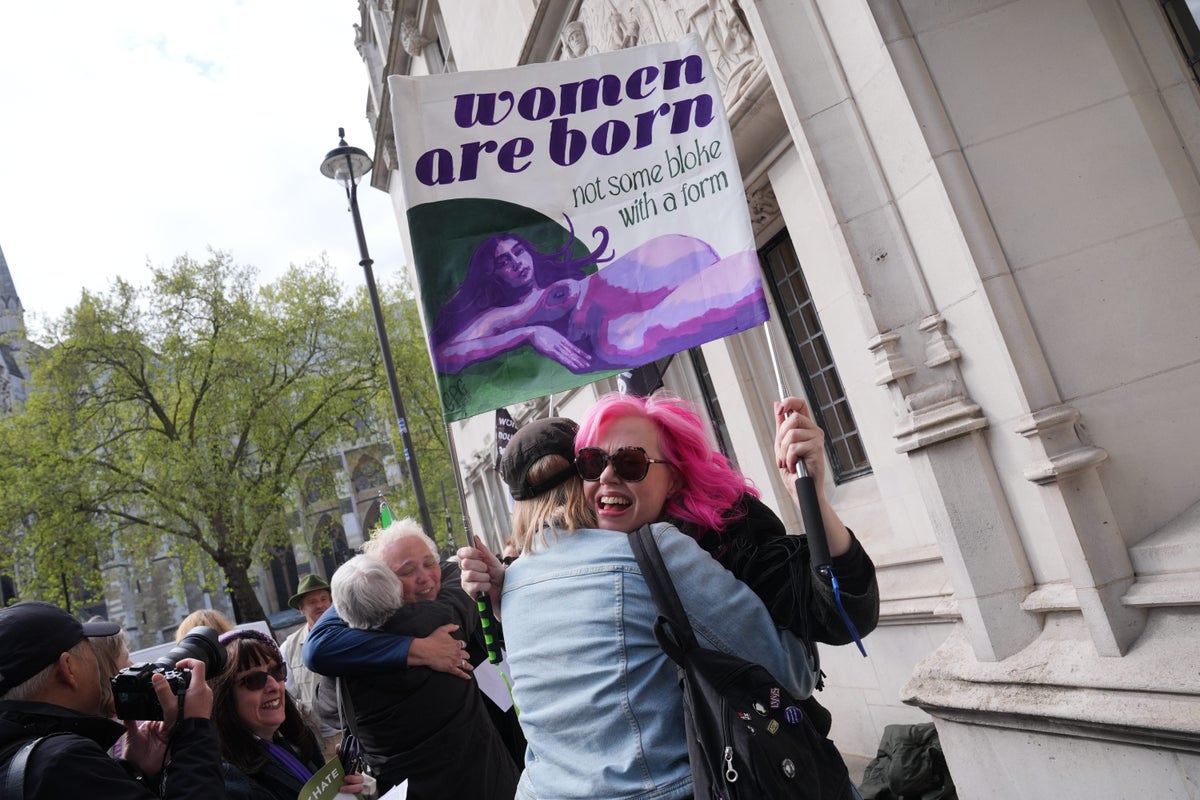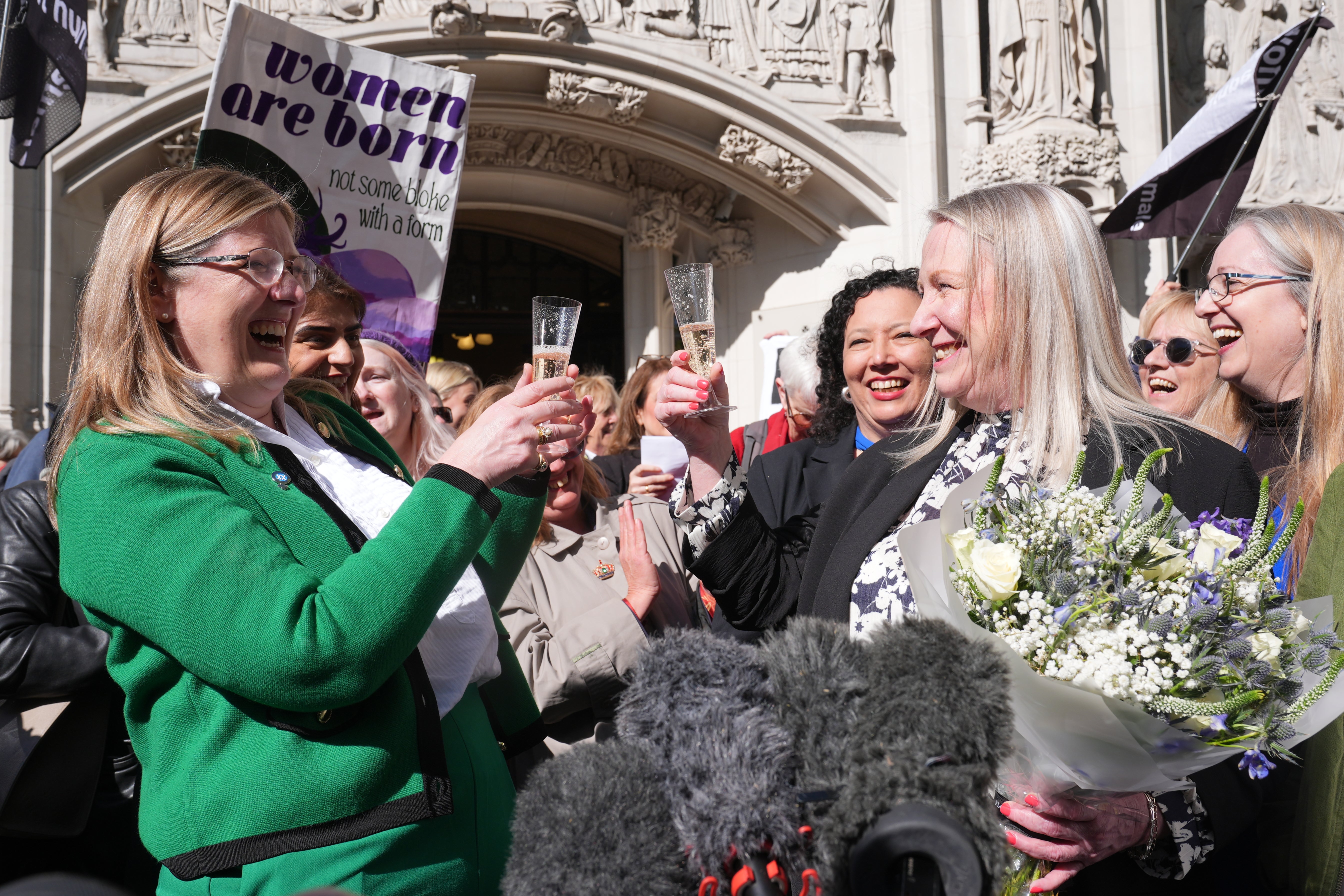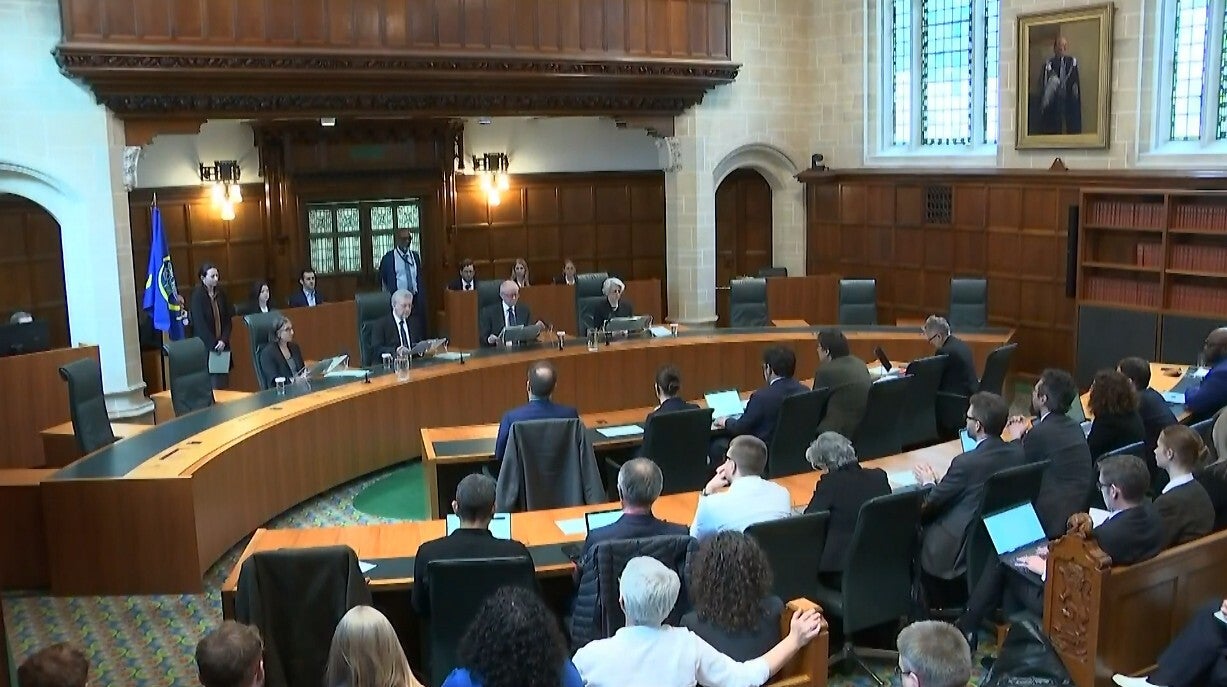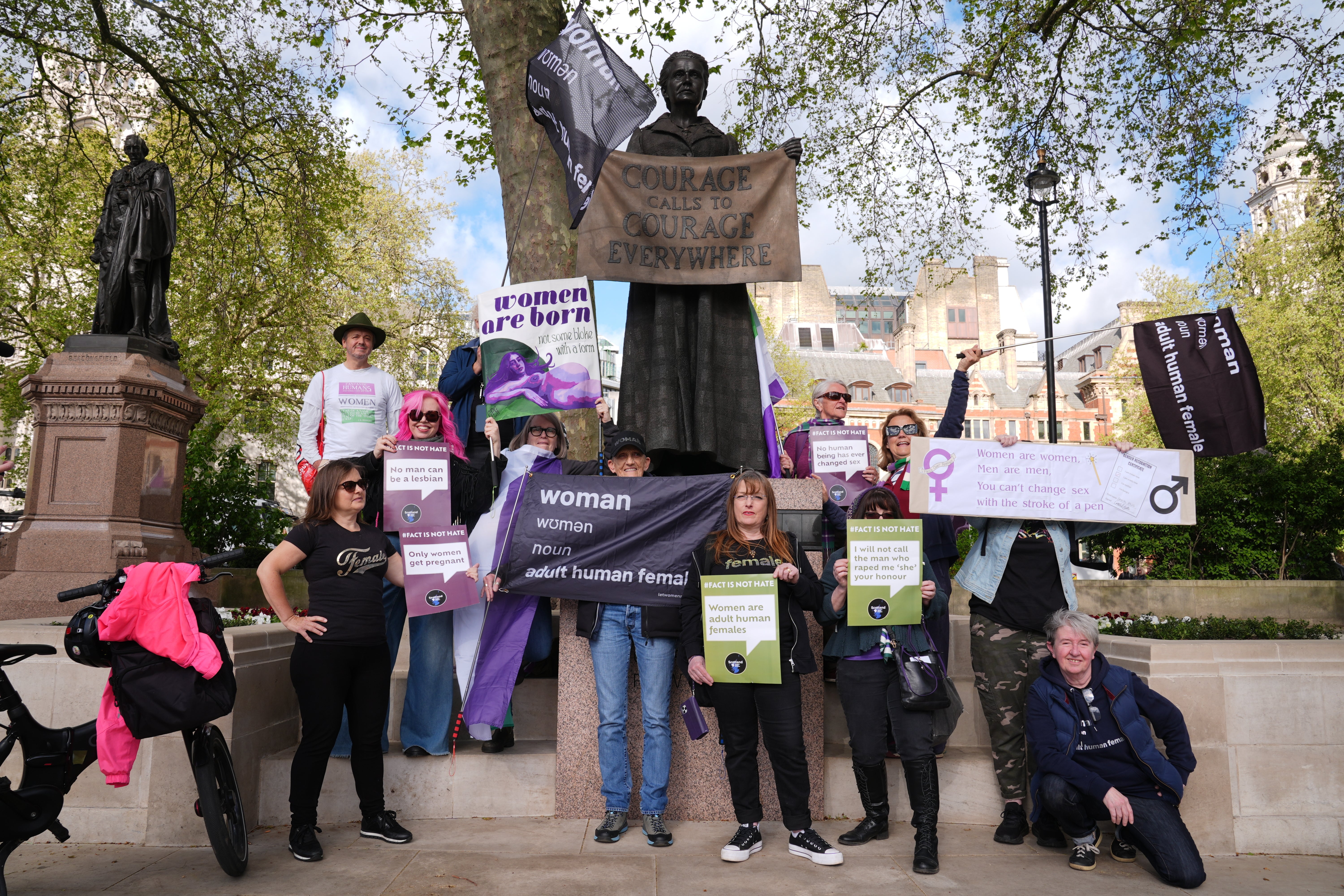
Transgender women with a gender recognition certificate can be excluded from single-sex spaces if “proportionate”, the Supreme Court has ruled as the Government said the decision brought “clarity and confidence” for women and service providers.
Campaign group For Women Scotland (FWS) brought a series of challenges – including to the UK’s highest court – over the definition of “woman” and whether someone with a gender recognition certificate (GRC) recognising their gender as female should be treated as a woman under anti-discrimination legislation.
In a judgment on Wednesday, five Supreme Court justices unanimously ruled in FWS’s favour, finding that the terms woman and sex in the Equality Act “refer to a biological woman and biological sex”.
The justices said that this interpretation of the law does not cause disadvantage to trans people, who were described as a “potentially vulnerable group”.
In an 88-page judgment, justices Lord Hodge, Lady Rose and Lady Simler said that while the word “biological” does not appear in the definition of man or woman in the Equality Act, “the ordinary meaning of those plain and unambiguous words corresponds with the biological characteristics that make an individual a man or a woman”.
The justices, supported by Lords Reed and Lloyd-Jones, later said that if “sex” did not only mean biological sex in the 2010 legislation, providers of single-sex spaces including changing rooms, homeless hostels and medical services would face “practical difficulties”.
They said: “If as a matter of law, a service provider is required to provide services previously limited to women also to trans women with a GRC, even if they present as biological men, it is difficult to see how they can then justify refusing to provide those services also to biological men and who also look like biological men.”

The justices added: “Read fairly and in context, the provisions relating to single-sex services can only be interpreted by reference to biological sex.”
They later said that while there were “carve-outs” in the Equality Act for single sex spaces which permit what would usually be seen as gender reassignment discrimination, there was no similar exception for people with a GRC.
“The intention must have been to allow for the exclusion of those with the protected characteristic of gender reassignment, regardless of the possession of a GRC, in order to maintain the provision of single or separate services for women and men as distinct groups in appropriate circumstances,” the justices continued.
The justices said that if sex had its “biological meaning” then service providers could separate male and female users into different groups, such as separate hostels for homeless people.
They added: “If sex means biological sex, then provided it is proportionate, the female only nature of the service … would permit the exclusion of all males including males living in the female gender regardless of GRC status.”

Obtaining a GRC requires a diagnosis of gender dysphoria, having lived in the acquired gender for at least two years and an intention to live in that gender for the rest of the applicant’s life.
Following the decision, a UK Government spokesman said: “We have always supported the protection of single-sex spaces based on biological sex.
“This ruling brings clarity and confidence, for women and service providers such as hospitals, refuges, and sports clubs.
“Single-sex spaces are protected in law and will always be protected by this Government.”
Scotland’s First Minister said the Scottish Government accepts the ruling, adding that “protecting the rights of all” will inform its response.
In a post on X, John Swinney also said: “The ruling gives clarity between two relevant pieces of legislation passed at Westminster.

“We will now engage on the implications of the ruling.”
Conservative Party leader Kemi Badenoch said the ruling was a “victory”.
She said: “Saying ‘trans women are women’ was never true in fact, and now isn’t true in law either.
“This is a victory for all of the women who faced personal abuse or lost their jobs for stating the obvious. Women are women and men are men: you cannot change your biological sex.
“The era of (Prime Minister Sir) Keir Starmer telling us women can have penises has come to an end.
“Well done to For Women Scotland.”
Author JK Rowling, who has been outspoken on gender issues, said in a post on X that the campaigners who brought the case to the Supreme Court have “protected the rights of women and girls across the UK”.
She also said: “It took three extraordinary, tenacious Scottish women with an army behind them to get this case heard by the Supreme Court,” adding: “I’m so proud to know you.”
It took three extraordinary, tenacious Scottish women with an army behind them to get this case heard by the Supreme Court and, in winning, they’ve protected the rights of women and girls across the UK. @ForWomenScot, I’m so proud to know you 🏴💜🏴💚🏴🤍🏴 https://t.co/JEvcScVVGS
— J.K. Rowling (@jk_rowling) April 16, 2025
Campaign group Sex Matters, which had made arguments in the case, said the court had given “the right answer”.
Maya Forstater, the group’s chief executive, said: “We are delighted that the Supreme Court has accepted the arguments of For Women Scotland and rejected the position of the Scottish Government.
“The court has given us the right answer: the protected characteristic of sex – male and female – refers to reality, not to paperwork.”
But LGBT charity Stonewall said there is “deep concern” around the consequences of the Supreme Court ruling, which it said is “incredibly worrying for the trans community”.
Chief executive Simon Blake added: “It’s important to be reminded the court strongly and clearly reaffirmed the Equality Act protects all trans people against discrimination, based on gender reassignment, and will continue to do so.
The justices said transgender people are still protected from discrimination, and that “they would be able to invoke the provisions on direct discrimination and harassment, and indirect discrimination” if needed.
The matter first came to court in 2022 when FWS successfully challenged the Gender Representation on Public Boards (Scotland) Act 2018 over its inclusion of trans women in its definition of women.
The Court of Session ruled changing the definition of a woman in the Act was unlawful, as it dealt with matters falling outside the Scottish Parliament’s legal competence.
Following the challenge, the Scottish Government dropped the definition from the Act and issued revised statutory guidance – essentially, advice on how to comply with the law, prompting further legal challenges from FWS.







